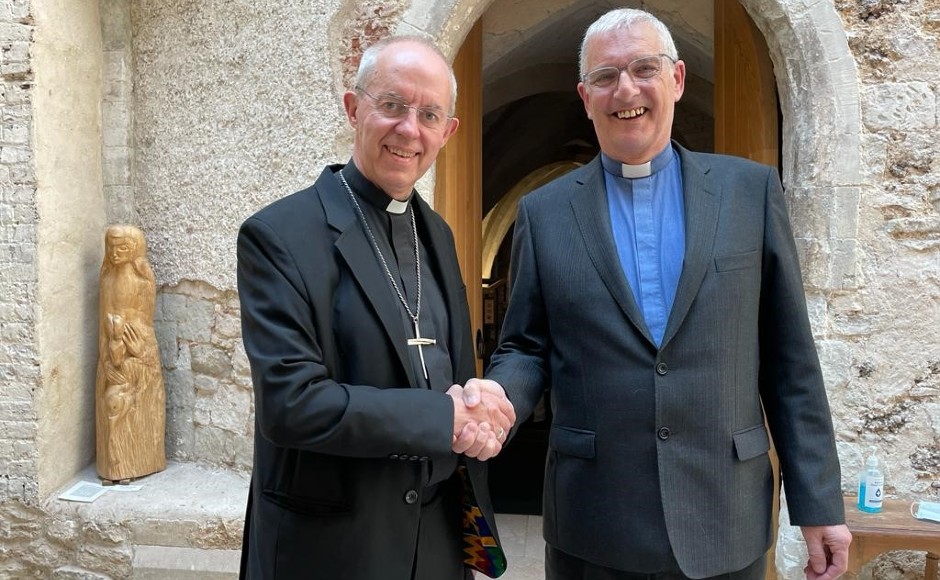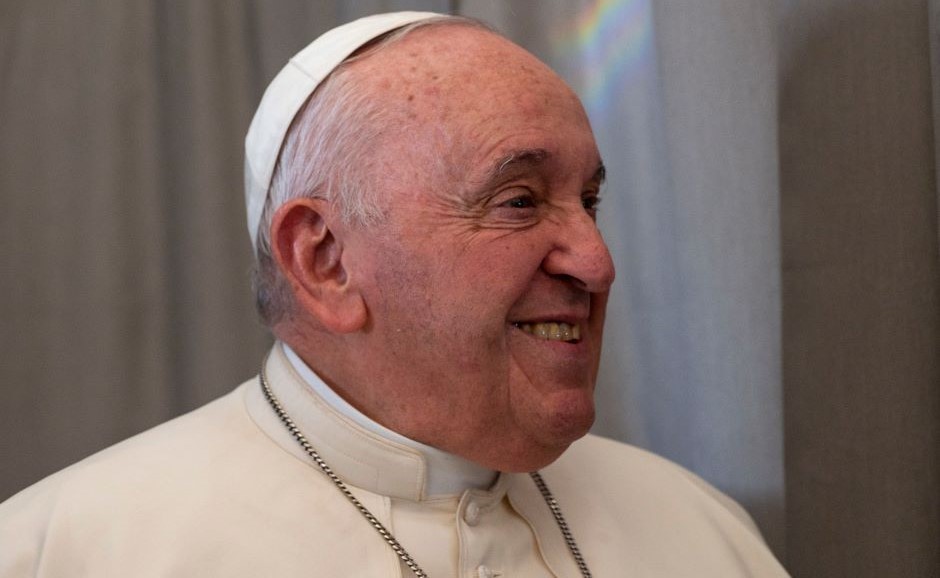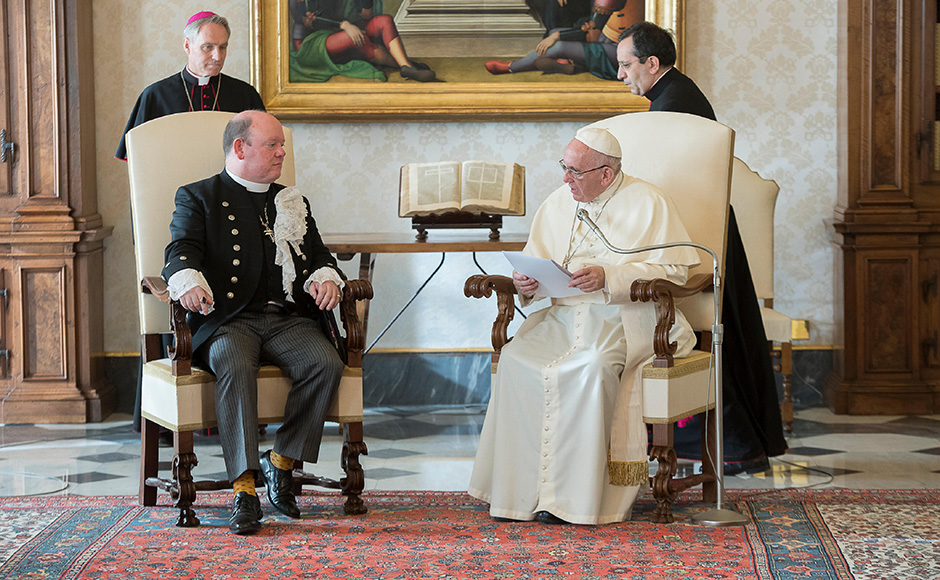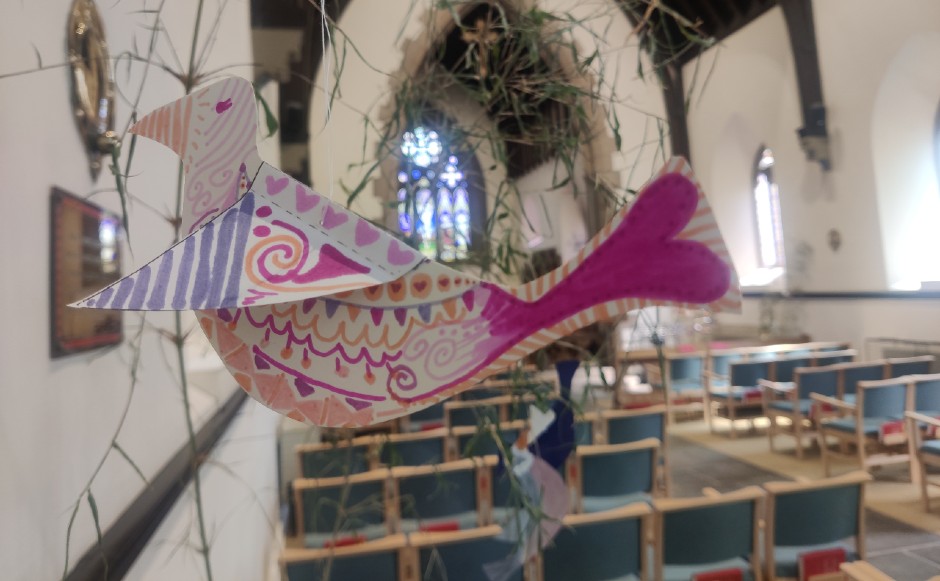Moderator asks for prayers ahead of historic South Sudan visit
Published on 30 January 2023
The Moderator of the General Assembly has urged people to pray for the people of South Sudan ahead of his historic ecumenical visit to the country this week.
He said he, Pope Francis and the Archbishop of Canterbury are making their Pilgrimage of Peace "as servants" to stand in unified solidarity with local people and "amplify" their cries as they continue to suffer from conflict, flooding and famine.

South Sudan gained independence from Sudan in 2011 and there was great hope for the country but communities have been torn apart by violence and an estimated 400,000 people have lost their lives.
It is estimated that 9.4 million people need humanitarian assistance and around two million have been displaced from their homes.
Dr Greenshields, Pope Francis and Most Rev Justin Welby have been invited to South Sudan by President Salva Kiir Mayardit and will meet with him and his five vice presidents in the capital city of Juba.
The three spiritual leaders will also meet local church representatives, political leaders, civil war victims living in a displaced persons camp and lead a large open-air prayer vigil for peace.
Christian unity
Dr Greenshields said: "South Sudan is the youngest country in the world and has enormous potential.
"Its greatest resource is its people and I am humbled at the opportunity to come alongside and support our brothers and sisters in their search for peace, reconciliation and justice.
"It is a privilege to be joining Pope Francis and the Archbishop of Canterbury on this historic ecumenical Pilgrimage of Peace and we come as servants of the global Church, joined in the unity of the Holy Spirit to offer our encouragement.
"The Churches in South Sudan - Presbyterian, Anglican and Catholic - have an important role to play in supporting efforts to bring peace to the nation and we are honoured to be part of this journey."
Presbyterianism was introduced to Sudan at the beginning of the 20th century by American missionaries and today the Church of Scotland has an official partnership with the Presbyterian Church of South Sudan and supports its Presbyterian Relief and Development Agency.
The country has a population of around 10.9 million people and between 60-70% of them identify as Christian.

The Church there - Presbyterian, Catholic and Anglican - was instrumental in ensuring that the country became independent peacefully.
Dr Greenshields said: "The Church of Scotland has been working closely with the Church in South Sudan since 2015 to support vital work on peace, reconciliation and conflict resolution.
"It has helped local church leaders work at both a grassroots level and political level to try and bring unnecessary conflict to an end and build lasting peace, stability and unity.
"We pray that this visit will be a catalyst for the leaders of South Sudan to focus on what unites them and not what divides them for they are all loved equally in the eyes of the Lord.
"And to do so for the sake of the future of all their people to ensure a just peace which allows everyone the opportunity to flourish and live healthy and happy lives.
"There is still much work to do and the symbolism of this historic ecumenical visit after centuries of division between parts of the Christian Church sends out a very strong message about our steadfast commitment to standing in solidarity with the churches and people of this country.
"We encourage the people of South Sudan to give expression to Jesus' words that ‘Blessed are the peacemakers for they will be called the children of God."
The ecumenical Pilgrimage of Peace (3-5 February) was promised during a spiritual retreat at the Vatican in 2019 attended by South Sudanese political leaders.
Last November, a historic declaration of friendship between the Church of Scotland and the Catholic Church in Scotland was signed at Dunfermline Abbey.
Named after the 11th century Scottish Queen who is buried in the abbey, the St Margaret Declaration is the culmination of years of ecumenical relationship building between the two Churches which recognise each other as brothers and sisters in Christ.


